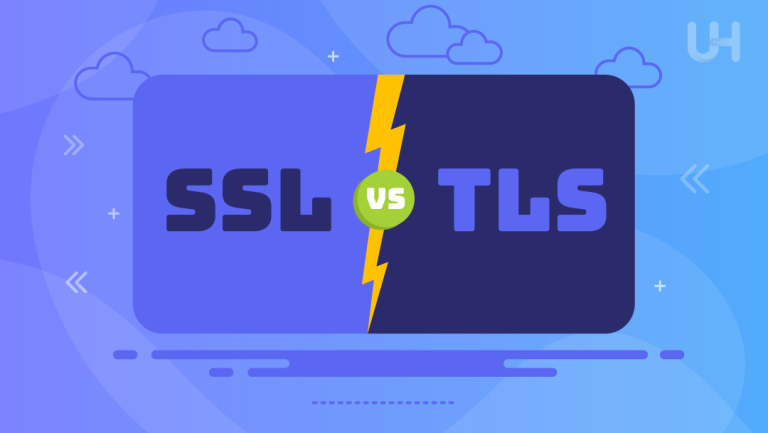Safeguarding user data has become a priority in today’s digital world. The General Data Protection Regulation, better known as the GDPR or GDPR Hosting, is a comprehensive data protection law enacted by the European Union in 2018 that protects personal information. It sets very high bar regulations for how organizations acquire, store, and process information from EU citizens.
Even if your website falls outside the EU, compliance with it becomes mandatory the moment you process data from residents of the EU. Since GDPR-compliant hosting allows your website to stand in regard to a legal duty, huge fines and penalties will be avoided. In this guide, we will help you understand GDPR hosting and how it benefits the data protection of your website.
What Is GDPR Hosting?
GDPR hosting is a kind of custom VPS hosting that has adapted to meet the standards set by the General Data Protection Regulation. In context, the services ensure that whatever personal data your website collects, processes, or stores observes strict data privacy and data security as stipulated by GDPR, including implementing such security measures as encryption, data access control, and data storage within GDPR-compliant regions.
The hosting provider should also note the data processing agreement and be ready to assist users in fulfilling their requests concerning their rights in relation to personal data, such as data access or deletion. In short, GDPR in web hosting helps protect user data and ensures legal compliance.
The Key GDPR Principles

- Legality, Equity, and Transparency: The processing entity may process personal information lawfully and equitably in a transparent manner. Users are entitled to be informed about how their information is being collected and used.
- Data Minimization: Only the collection of relevant and necessary data for the purpose at hand. Data Minimization reduces the associated risk of unnecessary exposure or misapplication of data.
- Accuracy: Any organization should ensure that data about a person is accurate and up to date. If data is found to be inaccurate, it should be erased or rectified without delay.
- Storage Limitation: Personal data shall be kept in a form that permits identification of data subjects for no longer than necessary, and it shall be deleted in a secure way when it is no longer needed for data privacy.
Why Does Your Website Need GDPR Hosting?
Your website requires hosting in compliance with the very strict actual rules for personal data protection set by the European Union. If you choose European VPS hosting and your website works with the personal information of the citizens of the European Union, then GDPR compliance is definitely obligatory, regardless of where your business operates. Non-compliance with the GDPR can mean substantial penalties-including fines up to €20 million or 4% of your global turnover.
The good thing with GDPR hosting providers is that they offer inbuilt features to let you manage user data securely, including data encryption, storage, and support for data subjects upon request, such as deletion or access. In the end, GDPR hosting protects your users’ data, increases their trust, and saves your business from expensive legal issues.
How to Choose a GDPR Hosting Provider?
The selection of a proper hosting provider should be done by giving great importance to a number of key factors in the case of GDPR compliance. First, ensure that their data centers are located within the EU or in regions compliant with GDPR since data is required to be kept in approved locations. Second, ensure that the provider provides data encryption service both in transit and at rest.
Third, check for accounts of DPAs or Data Processing Agreements stating how the providers are going to handle your data. Lastly, ensure they provide trustworthy security features, such as periodic backups and access control. Choosing a host with all the conditions above will mean your website is safe and GDPR-compliant.
Fourth, when considering the right GDPR hosting provider, it’s essential to understand both data protection regulations and the importance of comprehensive IT support. Working with trusted experts in IT support and cybersecurity can help ensure your systems comply with data laws while optimizing security and performance for your business.
Key Features of GDPR Hosting
- Data Encryption: Hosting compliant with GDPR encrypts personal data in transit and at rest, thus securing sensitive information from possible breaching or theft.
- Data Processing Agreement (DPA): Hosting providers should be willing and able to agree to a DPA that describes its role and responsibility regarding your website data, according to the prescriptions of GDPR standards.
- Regular Security Audits and Compliance: The system runs routine security audits and ensures compliance, which includes various activities like vulnerability assessment to identify and mitigate potential risks.
- User Data Rights Management: Hosting services shall support requests for data access, correction, or deletion on behalf of the user in accordance with the requirements of GDPR.
Secure Your Website with GDPR-Compliant Hosting!
Concerned about meeting GDPR requirements for your website? UltaHost’s Europe Dedicated Server offers robust, GDPR-compliant hosting solutions designed to keep your data secure and your business in full legal compliance.
GDPR Hosting for Different Types of Websites
- E-commerce Websites: Hosting compliance with the GDPR will be essential for e-commerce websites, as they will handle sensitive information related to customers’ data, like payment details, and ensure secure data and transactions.
- Corporate websites: Companies have to be aware of employee and customer data. Hosting a website with GDPR provides the necessary security for legal compliance regarding data privacy.
- Blogs and Content Platforms: Blogs that amass subscriber information or even use comment sections will need reliable blog hosting that is GDPR-compliant to manage and secure users’ personal information, including email addresses.
- Non-profit Websites: Organizations often handle donor information, so proper hosting needs to be GDPR compliant to ensure the security of sensitive personal and financial information.
Data Processing Agreements and GDPR Hosting
Another very important part of GDPR hosting is providing a data processing agreement- a document outlining the relationship between your organization, the data controller, and the hosting provider, the data processor. This must be in writing and outline how personal data is processed, stored, and secured by the hosting provider to meet GDPR requirements.
It includes data handling practices, privacy, security, incident notification, and hosting provider obligations to support a data subject’s request for access or erasure. In such a case, securing a DPA from your GDPR-compliant hosting provider ensures that both parties fulfill their respective legal obligations regarding data protection.
Security Measures in GDPR Hosting
- Encryption of Data: Personal data must be encrypted during transfer and storage; sensitive information should be unreadable to an unauthorized party.
- Regular Backups: The GDPR hosting offers regular data backups from data centers whenever there is a breach or failure in any system, thus minimizing potential data loss.
- Access Control: Inbuilt strict access control mechanisms – like MFA and other similar features – make sure sensitive data can be accessed only by authorized personnel.
- System Monitoring and Auditing: Continuous monitoring along with logging of data access or system activity allows for faster identification and response in such cases of a potential threat to ensure GDPR compliance.
Consequences Of Not Using GDPR-Compliant Hosting
Failure to use hosting compliant with GDPR can result in severe legal consequences: huge fines. Fines for non-compliance can be very serious and run as high as €20 million or 4% of your global annual revenue, whichever amount is higher. Apart from the financial penalties, it is possible that users’ compromised data may bring a bad reputation to your website, causing the loss of user trust and customers in the future.
Non-compliance can also be sued in court by individual persons whose rights have been violated with compensatory damages. In addition, the inability to meet the threshold set by GDPR may restrict your processing activities in the EU, seriously causing harm to business growth.
Steps to Ensure GDPR on Your Website
- Privacy Policy Update: Clearly and transparently provide your privacy policy to users- inform them how data is collected, used, and stored so that it complies with regulations under GDPR.
- Get User Consent: In collecting personal data, introduce mechanisms of explicit consent, like opt-in checkboxes, that ensure users also actively agree to the handling of that data.
- Enable Data Subject Rights: Give users the right to provide access, correction, or erasure of personal data; respond accordingly and on time, according to GDPR.
- Use GDPR-Compliant Hosting: Choose a host for your website that is structured to comply with the regulations of GDPR. That is, select the right hosting provider that ensures proper data storage, security, and processing agreements are in place.
Conclusion
GDPR hosting is about adhering to strict EU data protection legislation. It will not only help protect your users’ personal information but also shield your business from hefty fines, legal complications, and reputational damage. You can keep your website safe and lawful by understanding the major principles of GDPR, finding a compliant hosting provider, and taking necessary security measures. Prioritizing GDPR compliance creates a relationship of trust with your users and a trail of greater transparency.
Secure your website’s data and ensure GDPR compliance with Ultahost’s affordable SSL certificates. Encrypt user information and protect sensitive data during transmission, safeguarding privacy and building trust.
FAQ
What is GDPR hosting?
GDPR hosting ensures that your website hosting services comply with the EU’s General Data Protection Regulation.
Why does my website need hosting that is compliant with the GDPR?
If your website collects data from EU residents, you must legally comply with GDPR, or you may incur heavy fines and breach user privacy.
How is my hosting provider GDPR-compliant?
One must look for features such as data encryption, secure storage, and a DPA provided by the provider.
Can I use GDPR hosting outside of the EU?
Yes, it does. Firstly, any website responsible for data from citizens of the European Union has to host GDPR-compliant websites, regardless of where the business is based.
What are the consequences of failing to use GDPR hosting?
Follow the code to avoid your business facing fines, lawsuits, and other damage to its good reputation.
How does GDPR hosting protect my users’ data?
It institutes strong security measures, such as encryption and data backups, with tight access controls to ensure that personal information remains secure.
What role does an SSL certificate play in GDPR hosting?
An SSL certificate encrypts the data between your site and its users so it cannot be accessed.











